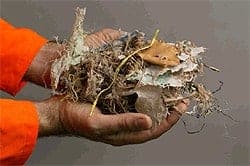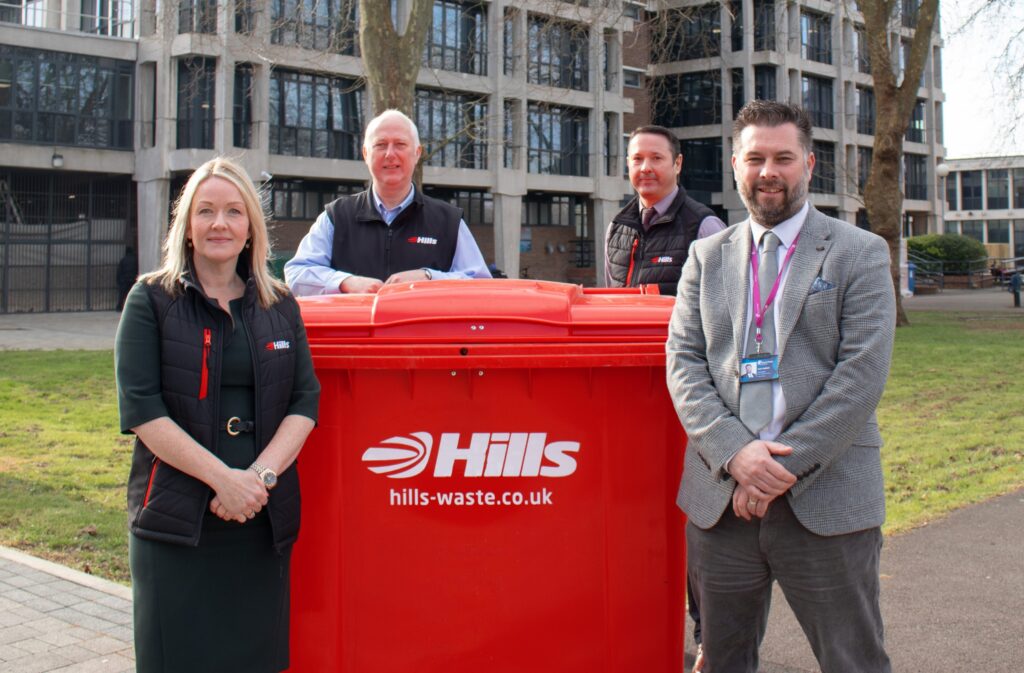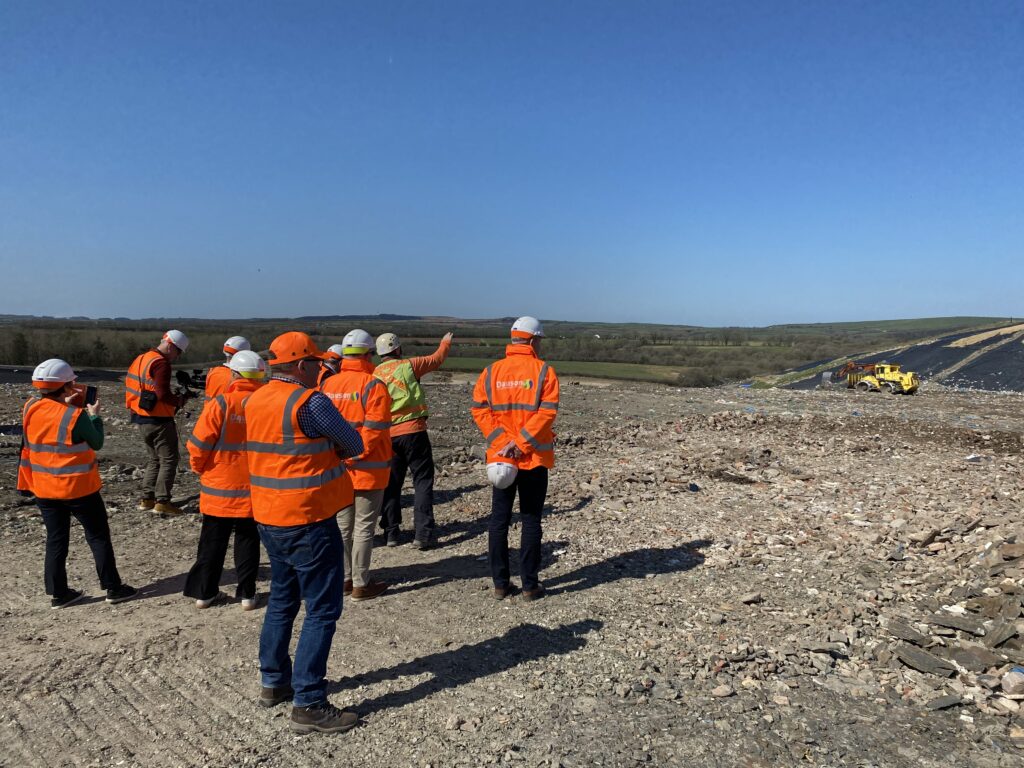The Environment Agency has revealed a huge increase in the number of companies permitted to export refuse derived fuel to Europe for energy generation.
Refuse-derived fuel (RDF) is produced by shredding and dehydrating residual waste and the Environment Agency says it “is waste and remains waste until it is burned as fuel and the energy is recovered”.

Data obtained by letsrecycle.com shows that, between January 1 and May 25 2011, 18 permits were issued for the export of RDF to seven different countries on the continent, with the Netherlands the prime location for material.
The permits are shared among 12 waste and recycling companies and cover a combined tonnage of 713,000 tonnes.
Waste management firm SITA UK is permitted to export the largest amount of material, with four active permits totalling 417,000 tonnes this represents 58.48% of the total amount permitted for export.
These figures represent a boom in permitted operators compared to December 2010 when only three companies had permits to ship material (see letsrecycle.com story) .
The Environment Agency data also reveals that only 13,144 tonnes has been shipped to the permitted destinations so far under the permits issued since January 1 2011.
The export of RDF from the mechanical biological treatment facilities to European destinations is described by the Environment Agency as a short term solution to a lack of available outlets in the UK. This has been driven by the downturn in the construction market which limited the available cement kilns as an outlet for material.
| Country |
Notifier | Waste Description | Quantity Moved (tonne) | Quantitiy Notified (tonne) |
|---|---|---|---|---|
| Denmark | Transwaste Recycling & Aggregates | RDF | 10,000 | |
| Estonia | Hinkcroft Transport Ltd | Refused Derived Fuel (RDF) | 15,000 | |
| Germany | Thanet Waste Services Ltd | Refused Derived Fuel | 1,930 | 12,000 |
| Germany | Shanks Waste Management Ltd | Solided Recovered Fuel (RDF) | 13,000 | |
| Latvia | SITA UK Ltd | Refused Derived Fuel (RDF) | 25,000 | |
| Latvia | N&P Alternative Fuels Ltd | Refused Derived Fuel (RDF) | 40,000 | |
| Latvia | N&P Alternative Fuels Ltd | Refused Derived Fuel (RDF) | 10,000 | |
| Netherlands | Biffa Waste Services Ltd | Mixed Fractions of Sorted Municipal Solid Waste (RDF) | 10,011 | 50,000 |
| Netherlands | SITA UK Ltd | Mechanical treatment of wastes (RDF) | 8,443 | 50,000 |
| Netherlands | Greenway Waste Recycling Ltd | End of Life Material from a MRF after Mechanical Treatment | 12,000 | |
| Netherlands | Shanks Waste Management Ltd | Solid Recovered Fuel (RDF) | 50,000 | |
| Netherlands | Waste Recycling Limited | RDF | 97 | 12,500 |
| Netherlands | New Earth Solutions Ltd | Mechanically sorted and treated municipal solid waste (RDF) | 15,000 | |
| Netherlands | New Earth Solutions Ltd | Refused Derived Fuel (RDF) | 25,000 | |
| Netherlands | SITA UK Ltd | RDF | 336,000 | |
| Portugal | Camreg Limited | Refused Derived Fuel | 1,083 | 1,500 |
| Sweden | SITA UK Ltd | Refused Derived Fuel (RDF) | 23 | 6,000 |
| Sweden | Stobart Biomass Products Ltd | Refused Derived Fuel Pellets (RDF) | 30,000 |
Transwaste
Hull-based Transwaste Ltd exported its first shipment of RDF to Aalborg in Denmark. The company said: This fuel is used as a replacement for fossil fuels such as coal and coke and is burnt in kilns which produce cement. This particular load weighed 2,800 tonnes and we plan to export further shipments throughout the year.
Transwaste produces RDF by separating mixed waste using screens and mechanical processes, to remove glass and metals for recycling, the biodegradable content and RDF.
Permits
Shanks Group was the first company to receive a permit to export RDF in June 2010, when it was allowed to export 40,000 tonnes of material to Germany and the Netherlands (see letsrecycle.com story).
At present, the company is still permitted to send 50,000 tonnes of material to Germany and the Netherlands. Data was not available on how much material had been shipped under this permit since January 1 2011.
Commenting onthe permits, Ian Goodfellow, managing director of Shanks, said: As you know as part of our PFI strategy we produce a fuel from MBT plants. We do have a market in the UK but it is mainly confined to the cement kilns. In the last year we have seen an emerging need for this fuel on the continent.
We are very pleased to satisfy that demand. It highlights a lack of consumption of energy produced from this source in the UK which is potentially not a good thing. We would like to send it to a domestic market. It is a fuel produced in the UK, we should be using it in the UK. It is a cheap source of energy.
Environment
Environmentalists have been quick to criticise the growth in RDF exports. Speaking to letsrecycle.com today, a spokeswoman for Friends of the Earth said: “Burning RDF generates energy very inefficiently and contributes to climate change, and most of the waste used to create RDF could and should be prevented, recycled, composted or reused instead.”
Legal
Questions have also been raised by members of the waste industry over the legality of shipping RDF to Europe. This is because the shipment of waste material for disposal abroad is illegal under the Transfrontier Shipment of Waste Regulations 2007.
But, speaking to letsrecycle.com last week, the Environment Agency said that the shipping of RDF for use in energy generation outlets in Europe was legally allowed under the European Waste Shipment Regulations 2006.
A spokeswoman for the Agency said: A company looking to ship RDF has to notify us and seek our approval. There are certain things we look for, such as is it going to a permitted site?, is it going to a company that wants it? and it is covered by the European Waste Shipment Regulations.
One observer pointed out that the Environment Agency was benefiting from the export of RDF. Since, 2007, RDF has been classed as a notifiable waste for which there is a charge payable to the Agency for import and export notifications. For example, one shipment of notifiable material for recovery currently costs 1,450.
Consent
Related Links
Angus Evers, partner and head of the environment group at London-based legal firm SJ Berwin LLP said that it was the UKs adoption of the Transfrontier Shipment of Waste Regulations 2007 that had enabled the export of RDF.
He said: The Regulations sort of work off a system of consent. There are certain countries which you are not allowed to export waste to at all, both within the EU and other developing countries. Provided you get the informed consent from that regulator in the [destination] country, it is permissible.









Subscribe for free